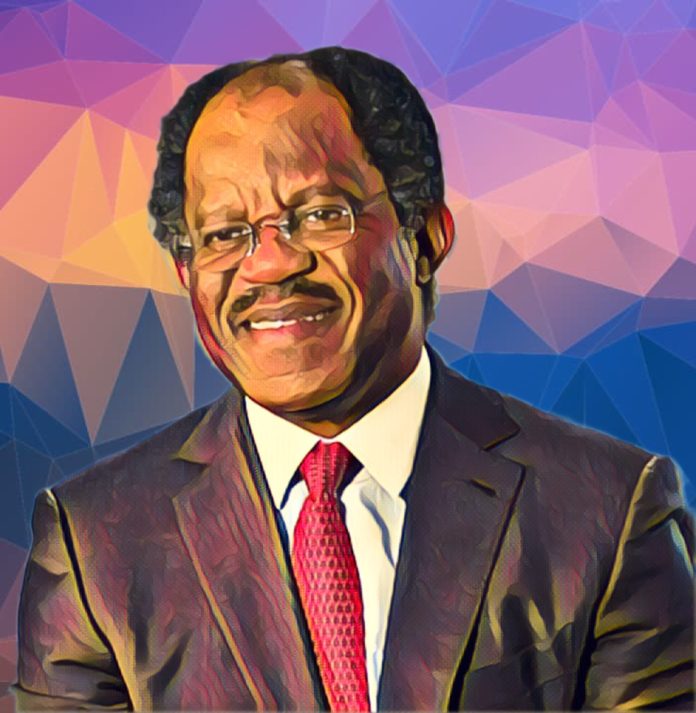KEY POINTS
-
Adebayo Ogunlesi OpenAI Africa academy anchors AI training in Nigeria.
-
Board role brings infrastructure expertise to OpenAI’s global scale.
-
His dual bet: technology plus African investment under one vision.
Adebayo “Bayo” Ogunlesi’s career reads like a tapestry of infrastructure, global finance and audacious bets. Now, as OpenAI’s newest board member, he is anchoring that track record to Africa’s AI ambition. Behind the headlines about AI academies lies a story of durable strategy, capital deployment, and a Nigerian son staking his claim in the continent’s future.
Born in 1953 in Sagamu, Ogun State, Nigeria, Ogunlesi attended King’s College, Lagos, before heading to Oxford University to study Philosophy, Politics and Economics. He then earned both a J.D. from Harvard Law School and an MBA from Harvard Business School.
His early career followed a path seen in many global financiers: he clerked for Justice Thurgood Marshall on the U.S. Supreme Court, then joined Cravath, Swaine & Moore as an attorney. Over time he gravitated from law to capital. At Credit Suisse, he spent over two decades, rising through roles including Executive Vice Chairman and Chief Client Officer.
In 2006 he launched Global Infrastructure Partners (GIP), with backing from institutions like Credit Suisse and General Electric. The firm under his stewardship acquired stakes in London City Airport, Gatwick, Edinburgh, and other landmark assets. Within GIP’s portfolio, Ogunlesi’s credit as the “man who bought Gatwick” is well known.
He also joined the board of BlackRock, served as Lead Director at Goldman Sachs, and holds multiple global board seats. All this pedigree made his appointment to OpenAI’s board in January 2025 unsurprising.
He joins OpenAI at a pivotal moment, when the company is reconfiguring governance, scaling compute, and expanding globally. In its announcement, OpenAI said Ogunlesi will guide it in securing infrastructure critical to AI’s future.
Adebayo Ogunlesi OpenAI Africa academy underlines strategic commitment
Shortly after joining the board, reports surfaced linking Ogunlesi to OpenAI’s decision to host its first AI academy in Africa at the University of Lagos (UNILAG). The academy is intended to train students, researchers, and professionals in AI tools and governance, with curriculum tailored to African challenges, languages, agriculture, health systems.
Sources describes it as OpenAI’s “debut African AI academy” launched in Lagos, with Ogunlesi playing a central role in the decision. Prior coverage notes “OpenAI, backed by Nigerian billionaire and board member Adebayo Ogunlesi, has officially launched its first AI academy in Africa at the University of Lagos.”
The academy aims to democratize access: free AI training, regional research bridges, and opportunities for local entrepreneurs. The timing and location matter. Lagos is Nigeria’s tech and education hub, so situating the academy there gives it a real shot at influence.
Leveraging infrastructure logic for AI scale
OpenAI’s ambitions hinge not just on algorithms but on physical infrastructure: data centres, energy, fiber, the backbone of computation. That’s where Ogunlesi’s strength shines. Observers say his longtime infrastructureLens is invaluable as OpenAI seeks to expand compute capacity globally.
Sources notes that OpenAI tapped Ogunlesi “to provide advisory support for securing essential infrastructure to advance its AI development.” With global tech majors expected to spend $200 Billion on capex in 2025, infrastructure knows no neutrality.
At the same time, Ogunlesi continues to eye African investments. In October 2025, media reported he flagged new interest in energy, aviation, ports, and renewables in Nigeria during a meeting with President Tinubu. He also acknowledged his reputation around airports, saying he might replicate models in Nigeria.
In effect, he is using the same dealmaking playbook, but now shifting part of the bet to AI and Africa’s next frontier.
Mini Q&A (compiled from public remarks and interviews)
Q: Why join OpenAI’s board now, after a lifetime in infrastructure?
A: “Thoughtful strategies and investment in infrastructure will be key to unlocking AI’s full potential,” Ogunlesi said in OpenAI’s announcement. OpenAI The move suggests he sees compute and data as the next generation of essential infrastructure.
Q: What does AI mean for Africa under your stewardship?
A: The academy in Lagos is a concrete step. By equipping local talent, the continent can stop being just a consumer of AI and start shaping it.
Q: How do you balance profit motive with inclusive development?
A: His posture suggests a hybrid: build scalable infrastructure, but anchor efforts in local capacity and equitable access.



